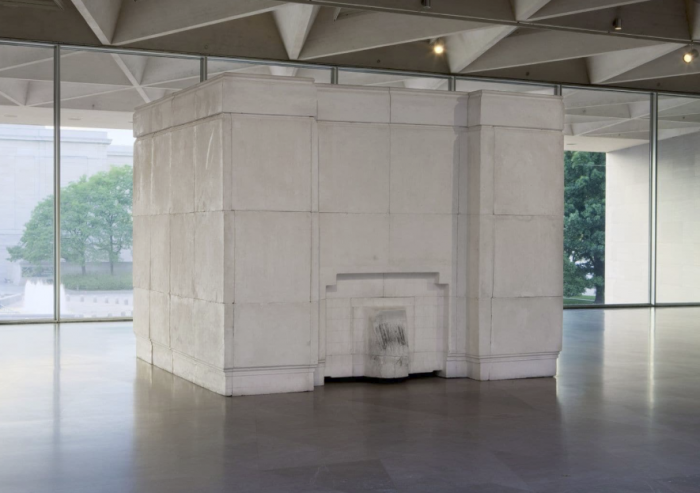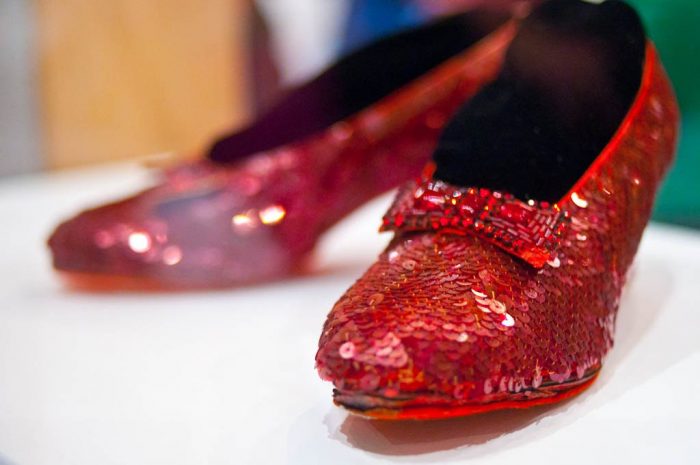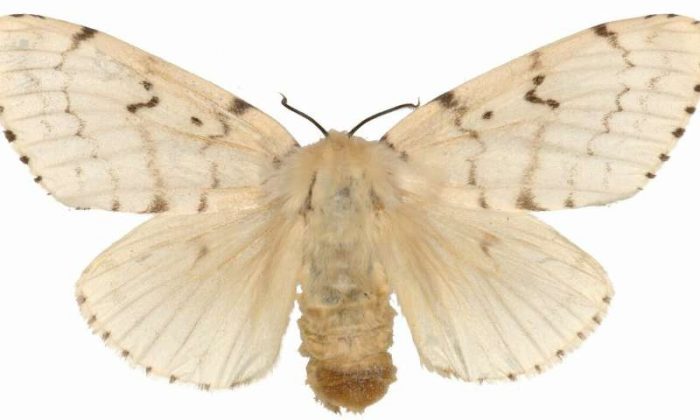Furloughed federal workers will be compensated for the time they spent working without pay, thanks to a bill sponsored by Maryland’s senators and signed into law Wednesday by President Donald Trump.
The bill, sponsored by Maryland Democratic Sen. Ben Cardin and co-sponsored by Maryland Democratic Sen. Chris Van Hollen and dozens of other senators, became the first of the 116th Congress to pass through both the House and the Senate on Jan. 11.
But Cardin and Van Hollen weren’t celebrating at the time of the signing. Instead, they sat with fellow Democratic Sen. Tina Smith of Minnesota around a table with federal security guards and janitorial workers in a discussion about the effects of the shutdown on contract workers. Read more from the Washington Times.
Inside the world’s largest collection of animal milk
National Geographic, January 16
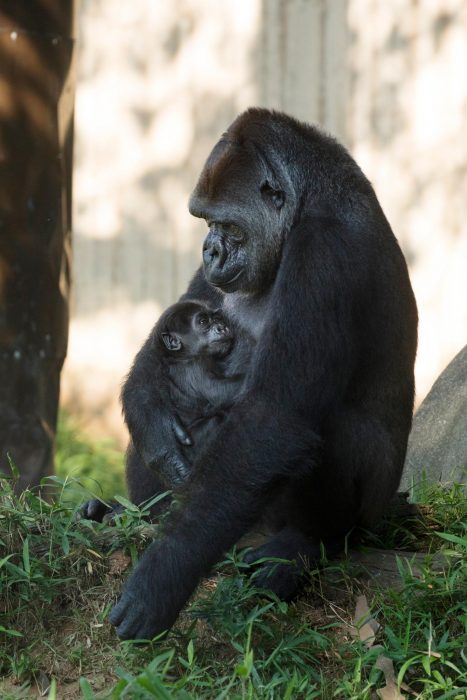
Western lowland gorilla Calaya carries her newborn, Moke, in the yard at the Smithsonian’s National Zoo in Washington, D.C. Moke was born on April 15, 2018.
PHOTOGRAPH BY REBECCA HALE
Like many science labs, the Conservation Biology Institute inside the Smithsonian’s National Zoo is brimming with vials. Maybe it’s because I was six months pregnant when I visited, but the samples being stored in these vials, held at the institute’s animal nutrition department, seemed especially priceless.
These are milk samples—exotic animal milk samples, to be exact, and the National Zoo has the largest and most diverse collection of them in the world. Read more from Catherine Zuckerman for National Geographic.
Aliph, the global fund to protect cultural heritage, announces its first projects in Iraq and Mali
Launched in 2016, Aliph will finance restoration work with technical support from the Louvre and Smithsonian Institution
The Art Newspaper, January 16

An Islamic State image of explosions at the fourth-century Christian Mar Behnam monastery in Iraq
Aliph, a Geneva-based global fund to protect cultural heritage in war zones, spearheaded by France and the United Arab Emirates and chaired by the American billionaire Thomas Kaplan, has revealed its first projects. They include the Mosul museum and the Behnam monastery in Iraq, as well as the Tomb of Askia in Gao, Mali. The organisation has also launched a worldwide call for new projects.
Originally proposed at an international conference in Abu Dhabi in 2016, Aliph—named after the first letter of the Arabic alphabet—has raised $60m so far, according to Aliph’s director Valéry Freland, a French diplomat.
For the Mosul museum, Aliph is funding the $480,000 preparatory study for its restoration, with technical support provided by the Louvre and the Smithsonian Institution. It also plans to cover at least part of the restoration works which, according to rough estimates, could amount to $6m-$10m. Read more from Vincent Noce for The Art Newspaper.
Scientists to inaugurate a new type of gamma ray telescope at Whipple Observatory
The prototype Schwarzschild-Couder Telescope (pSCT) is designed as a pathfinder telescope for the Cherenkov Telescope Array
UC Santa Cruz, January 16
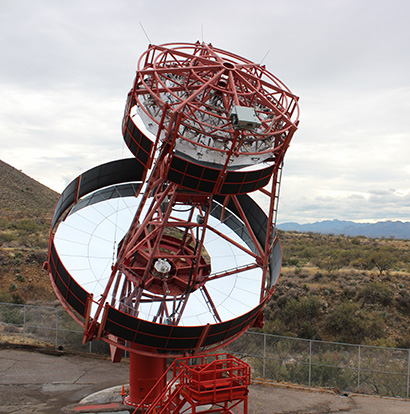
The prototype Schwarzschild-Couder Telescope (pSCT) is a novel type of gamma-ray telescope designed for the Cherenkov Telescope Array (CTA). (Photo by Amy Oliver, Fred Lawrence Whipple Observatory, Center for Astrophysics, Harvard & Smithsonian)
A new type of gamma-ray telescope will be unveiled January 17 in an inauguration event at the Fred Lawrence Whipple Observatory in Amado, Arizona. Expected to see first light in early 2019, the telescope is a prototype Schwarzschild-Couder Telescope (pSCT) designed for the Cherenkov Telescope Array (CTA), the next generation ground-based observatory for gamma-ray astronomy at very high energies. Read more from Tim Stephens for UC Santa Cruz Newscenter.
Male hermit crabs evolved larger sex organs to avoid losing homes
A study suggests hermit crabs with more valuable, easily stolen shells have evolved larger penises to more safely mate.
National Geographic, January 16
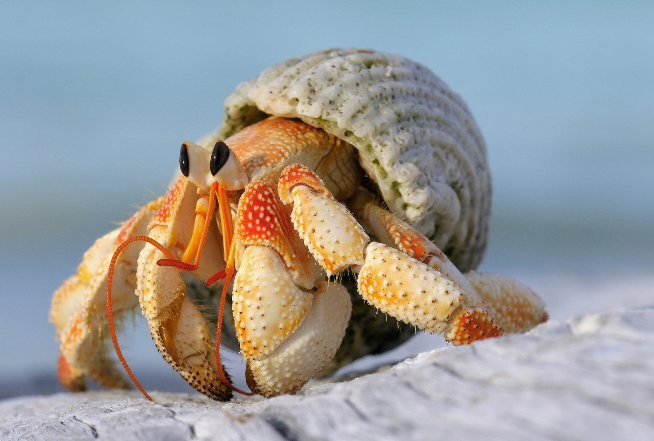
Like some of its relatives, strawberry land hermit crabs (Coenobita perlatus) in the Seychelles spend considerable energy “remodeling” their shells, which they are reluctant to leave for any reason—even to mate.
PHOTOGRAPH BY WIL MEINDERTS, MINDEN PICTURES
HERMIT CRABS ARE a common sight scuttling across warm beaches, but many of these charismatic crustaceans wield something surprising and hidden—very large penises, sometimes half the length of their shell-anchored bodies. New research suggests the crabs evolved such outsized organs to help them mate without straying far from home.
Some of these hermits expend a lot of energy “remodeling” the inside of their shells, which unlike most crabs they of course cannot grow themselves, says Mark Laidre, a biologist at Dartmouth College and a National Geographic Explorer. Read more from Jake Buehler for National Geographic.
Virtually Browse (and Support) the 20 Museums Closed by the Government Shutdown
Artfix Daily, January 15
With the 19 federally-funded Smithsonian museums and the National Gallery of Art in DC closed due to the continuing federal government shutdown, people can still view collections and support these vital American institutions–online.
The Smithsonian website has an array of thematic exhibitions of collection objects to browse. Check out Winter Wonderland, Feline Finds (for cat-centric art), Latino Art and Artists, and much more in the Learn & Explore section. Highlight images and videos from current (closed) exhibitions such as Charline von Heyl: Snake Eyes can be viewed as well.
Federal funding covers about 60% of the Smithsonian costs, and donations cover the rest. Tax-deductible gifts to fund the museums, research and cultural centers can be made online. Read more from Artfix Daily.
Massachusetts Attorney General Accuses Sackler Family of Misleading the Public About Opioids in Ruthless Chase of Profit
Slate, January 16
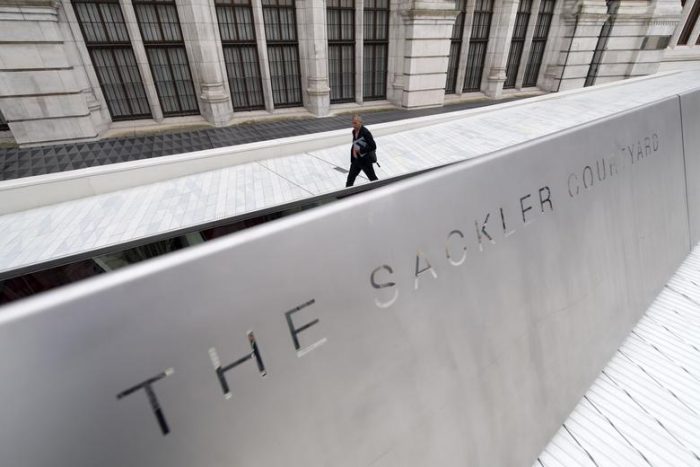
The Sackler Courtyard at the Victoria and Albert Museum in London.
AFP Contributor/Getty Images
A memo filed by the Massachusetts attorney general contends that the Sackler family, which owns OxyContin maker Purdue Pharma, has long directed an effort by the company to push doctors to prescribe heavier doses of the painkiller and keep their patients on it for longer, even as it knew of the dangers and addictive nature of opioids.Read more from Slate.
Science history: the man who defined drunk driving
Rolla Neil Harger invented the impressively named Drunkometer, forever changing police forces around the world. Jeff Glorfeld reports.
Cosmos, January 18
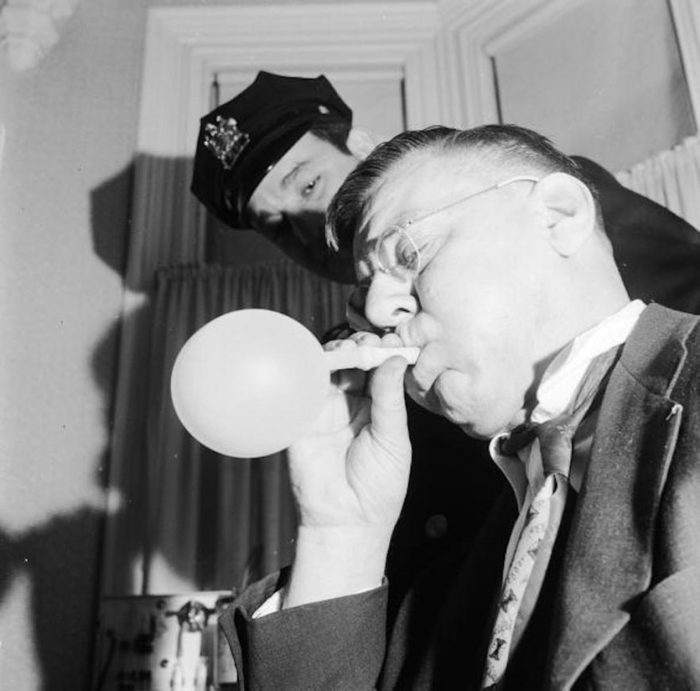
n a picture taken in 1955, a suspected drunk driver is tested using the Drunkometer.
ORLANDO /THREE LIONS/GETTY IMAGES
Anyone who has ever enjoyed a few alcoholic beverages and then pictured themselves being told to blow into the plastic straw presented to them by a police officer – and thus thought better of sitting behind the wheel of a motor vehicle – owes a debt of gratitude to Rolla N. Harger
By the same token, for anyone who thought it was worth the risk and decided to drink and drive, and then paid the price, Harger’s name might not evince the same warm feelings.
Either way, most of us, at one time or another, either directly or indirectly, have had some interaction with his creation. Read more from Cosmos magazine.



